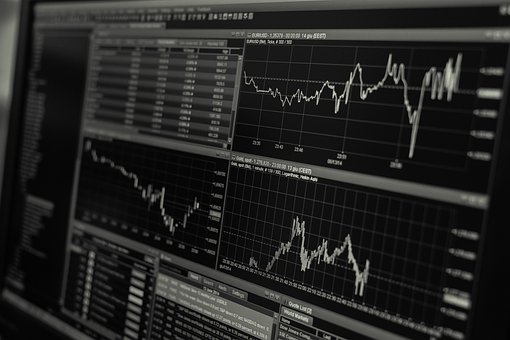How Does a High Unemployment Rate Affect the Economy?
Unemployment is an issue for all of us, as it has a direct impact on our standard of living. Before the Great Recession, the average American had close to zero savings, and today the average person is just a few weeks away from serious financial trouble if he or she does not have a job.
cyclical unemployment
Cyclical unemployment is a phenomenon that occurs during a business cycle or economic fluctuation. When an economy is experiencing growth, cyclical unemployment is very low. As more people are employed, sales and income increase. Because of this, businesses need more workers. Conversely, when the economy is in a recession, cyclical unemployment is high. This is because the number of unemployed workers exceeds the number of available jobs.
Cyclical unemployment is one of the three main classes of unemployment recognized by economists. The other types of unemployment are structural and seasonal. However, in order for one to say whether a country is experiencing high cyclical unemployment, it must first identify its current state of economic growth.
The unemployment rate has remained high in the United States since the end of the previous recession. Some economists argue that the underlying trend of unemployment has increased. However, a more accurate measure suggests that this is not the case. In fact, the most recent increase in unemployment can be attributed to cyclical factors. Nevertheless, the weak nature of the real output recovery and the slow pace of worker reallocation will likely keep cyclical unemployment at high levels for some time to come.
The official unemployment rate often understates the true number of unemployed people. This is because the number includes people who are either underemployed or discouraged and are not actively seeking employment. The official unemployment rate does not include those who are in full-time education or have given up on the search for a job.
The economic definition of the term “unemployed” is quite complex. It refers to a range of different conditions in the economy, including temporary unemployment, cyclical unemployment, structural unemployment, and institutional unemployment. The last term indicates a temporary transition between jobs, usually related to technological advances. The term “unemployed” is also sometimes used to refer to an individual’s willingness to work in low-skilled jobs.
The rate of unemployment will change throughout the business cycle, which is a period of economic activity lasting at least ten years. The unemployment rate is defined as the number of unemployed people divided by the total labor force. The unemployment rate is correlated with interest rates and inflation.
Effects on consumption
The effects of a high unemployment rate on consumption are difficult to measure because data are typically biased by the length of unemployment. For example, a worker who has been unemployed for a year is likely to have a lower estimate of their consumption than a worker who is unemployed for a few weeks. This timing issue is important for determining the causal effect of unemployment on consumption and welfare. A sharp decline in spending in a short period of time is quite different from the same decline spread out over a year.
The effects of a high unemployment rate on consumption are largely dependent on the sensitivity of the unemployment rate to economic growth. The unemployment rate will rise when growth is high and fall when it is low. This sensitivity also depends on labor market conditions and regulatory regimes. In the U.S., for example, Okun’s Law, named for the late economist Arthur Okun, postulates that a one-percent reduction in unemployment corresponds to a three-percent increase in output. However, recent estimates suggest that this relationship is not as strong and that the decrease in unemployment is accompanied by a decline in output.
The positive effects of unemployment benefits on consumption are more pronounced among unemployed individuals with no assets and no employed spouse. However, this effect is not substantial if the household has no savings or other source of income. This suggests that a high unemployment rate is detrimental to consumption. While unemployed individuals may have some money saved up, the impact of unemployment on consumption is largely dependent on their savings and other sources of income.
The effects of a high unemployment rate on consumption are difficult to assess due to the large variation in data. Nevertheless, the authors conducted a detailed study that examined the impact of unemployment insurance on the spending pattern of unemployed individuals. The authors found that extending unemployment insurance benefits to unemployed individuals increases the unemployed population’s income by twenty-five percent, while their spending also increases by twenty-five percent. These findings are consistent with the high replacement ratio of the CARES Act, which provides unemployed people with 1.5 times their usual weekly earnings.
Unemployment benefit programs are important economic stabilizers. By providing income to unemployed individuals, these programs encourage them to remain employed and maintain their level of consumption. Unfortunately, they also extend unemployment spells too long. Unemployment benefits can last for long periods, resulting in a higher national unemployment rate.
Effects on mental health
A high unemployment rate affects the mental health of many people. People who are out of work for a long period of time may have depression or anxiety. They may also have difficulty finding a new job because they are afraid of rejection. Fortunately, these conditions are treatable. The key is to keep your mental health under control. This will help you find a new job more easily.
The recent depression pandemic in the United States has had a negative impact on rates of depression and anxiety. In fact, one study found that four out of 10 people experienced symptoms of depression during the pandemic. In addition, one in 10 reported increasing alcohol use since the COVID. There has also been an increase in deaths related to drug overdoses, particularly synthetic opioids. In 2020, the United States is predicted to experience 93,000 drug overdose deaths – a 30% increase from 2019.
While depression and anxiety are serious issues, early interventions may help reduce their impact. Employers can help by providing workplace supports that support people with mental health issues, such as flexible hours and an environment where they can openly disclose their problems without fear of discrimination. If these measures are in place, they can improve the mental health future of a significant segment of society.
Several studies have reported that depression and unemployment are closely linked. This association is particularly notable among emerging adults. The higher the unemployment rate, the higher the likelihood of depression. The findings are consistent even when confounding variables are controlled, so this is a crucial public health issue.
Another study showed that people who experience depression in their early adulthood are more likely to have recurrent episodes in later life. This increased vulnerability could affect their social and economic status and interfere with their ability to develop romantic relationships. They may also lead to health-risk behaviors. This study provides a better understanding of how depression can affect a person’s life.
Impact on government programs
A high unemployment rate has a number of impacts, including on the government’s income. Unemployment reduces economic activity, which results in fewer people paying taxes to the government and less disposable income. High unemployment also dampens economic growth by making it more difficult for businesses to thrive.
In addition to impacting job creation, a high unemployment rate can affect the flow of people into jobs. These programs can affect the number of workers and their families. If a high unemployment rate is widespread, it can also impact government programs. In a recent study, researchers compared the outcomes of states that ended pandemic unemployment benefits early versus states that extended them until September. The results were similar, with the states that kept pandemic unemployment benefits having slightly higher job growth than those that did not.
Unemployment insurance programs can lower poverty rates. According to one study, these programs reduced poverty rates by nearly one percentage point in the 1980s and 1990s. However, the reduction was small when compared with 1960s and 1970s data. Unemployment insurance programs helped reduce poverty rates for people of all races and ages.
Unemployment benefit programs are important economic stabilizers. They protect workers’ incomes after a layoff, improve their long-run productivity, and stimulate the economy during recessions. However, governments need to be careful not to over-extend their programs or make them too generous.
The high unemployment rate can have a negative impact on the economy. A high unemployment rate may lead to deflation and inflation, lowering wages and lowering consumer spending. However, there are ways to reduce the rate. Governments may offer tax incentives and relocation subsidies to attract new businesses.
In Europe, unemployment benefit programs are generally funded through general payroll taxes. In the United States, unemployment benefits are a key source of short-term support for low-wage workers. This benefit system also helps the poorest households maintain consumption levels. However, it may not be enough. Some households may be better off without unemployment benefits as other members of the household can help maintain household expenditures.
High unemployment increases the number of people with limited income. In the early 2020s, an estimated 22 million people will be unemployed. This will limit their employment opportunities. The government has a duty to provide support to workers. The high unemployment rate has an adverse impact on unemployment insurance. However, unemployment insurance is important to maintain purchasing power. While unemployment insurance does not create new jobs, it may reduce the number of people seeking jobs.



